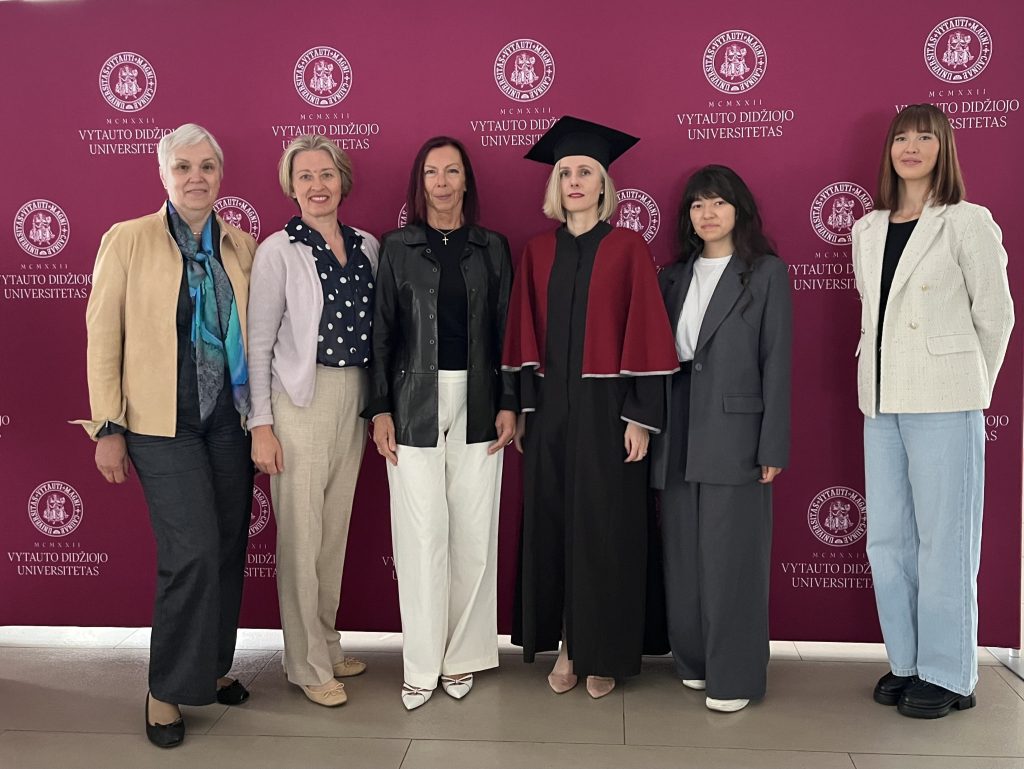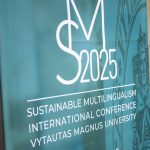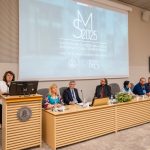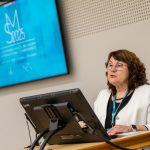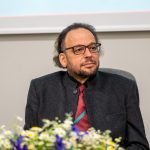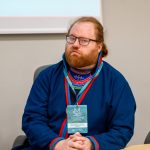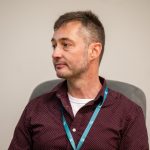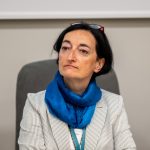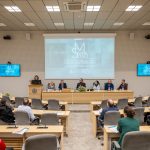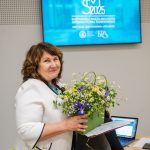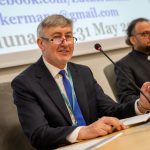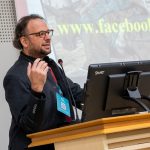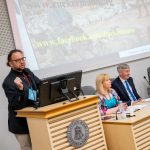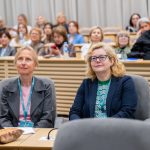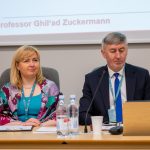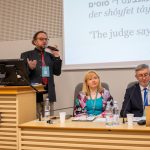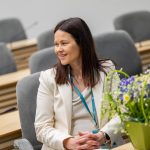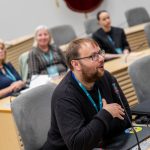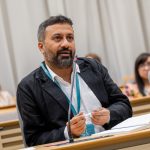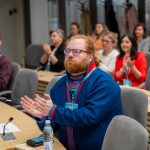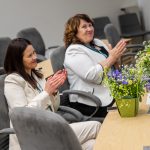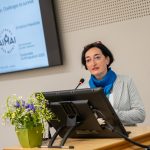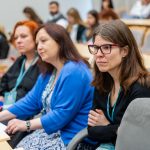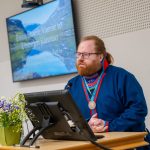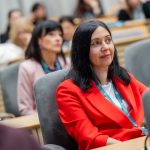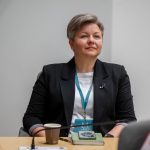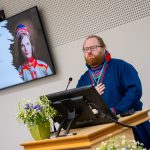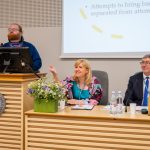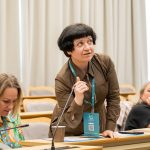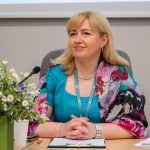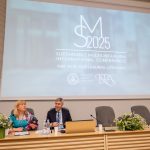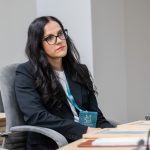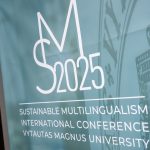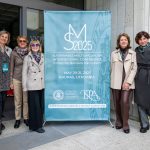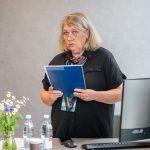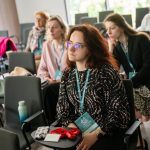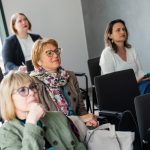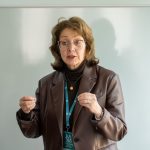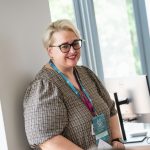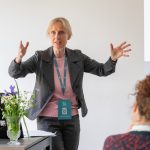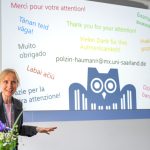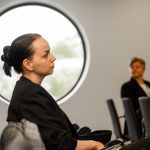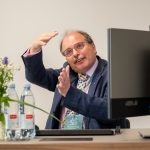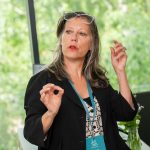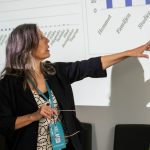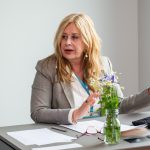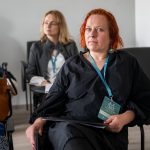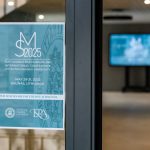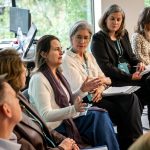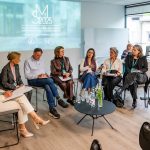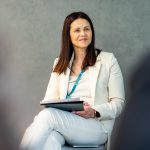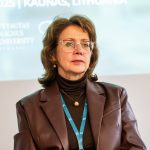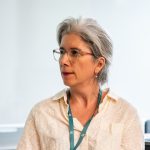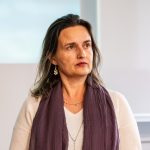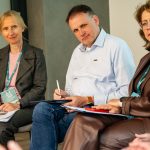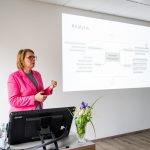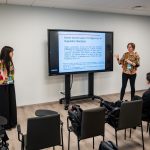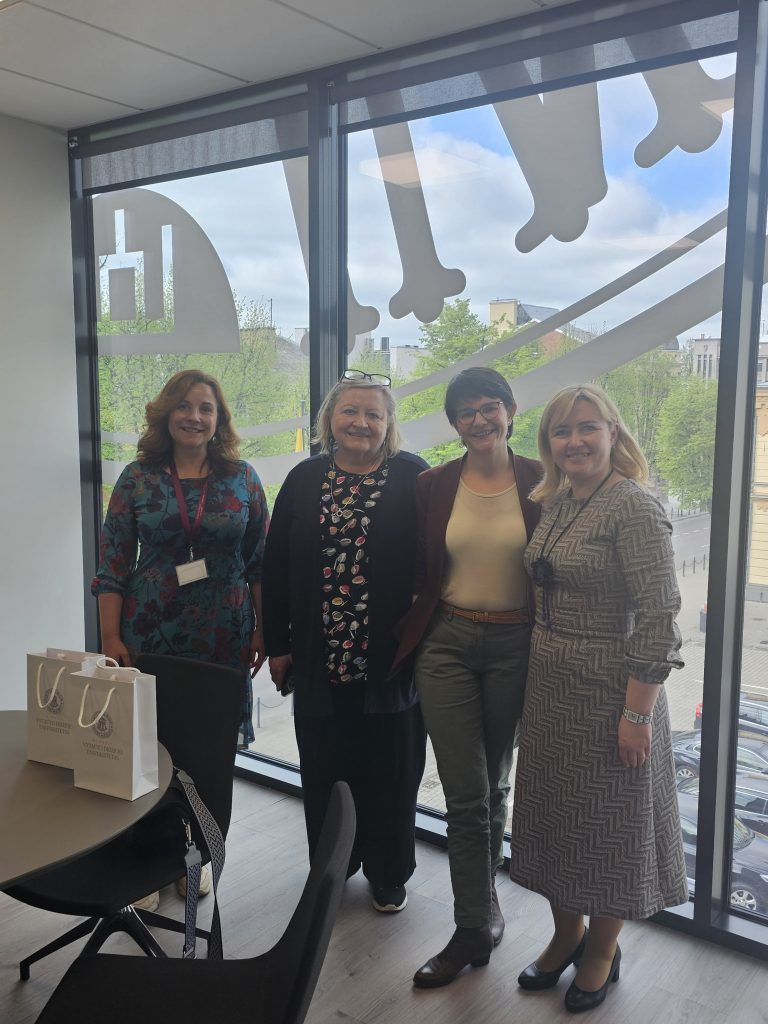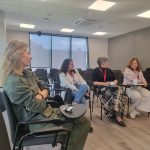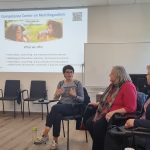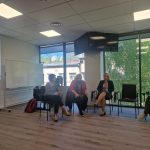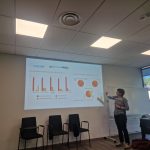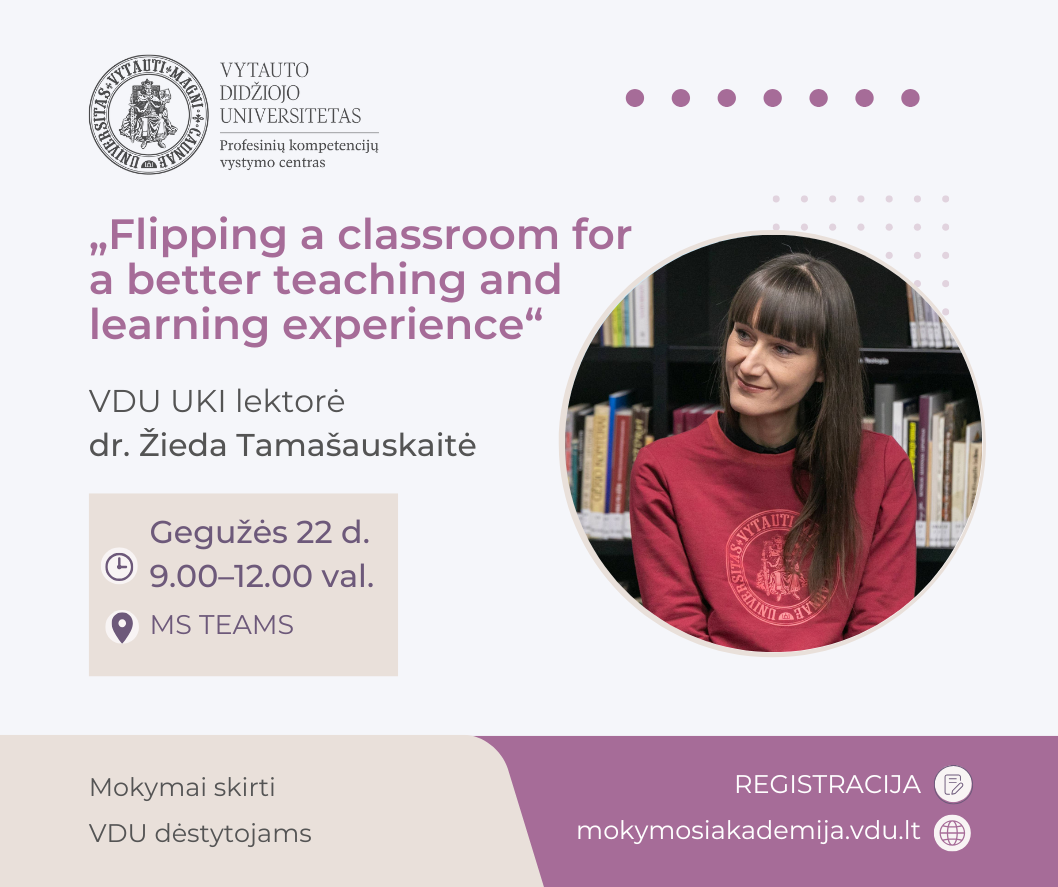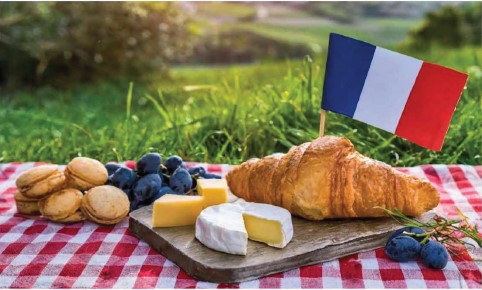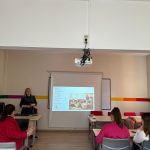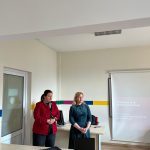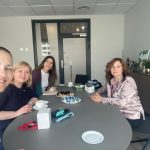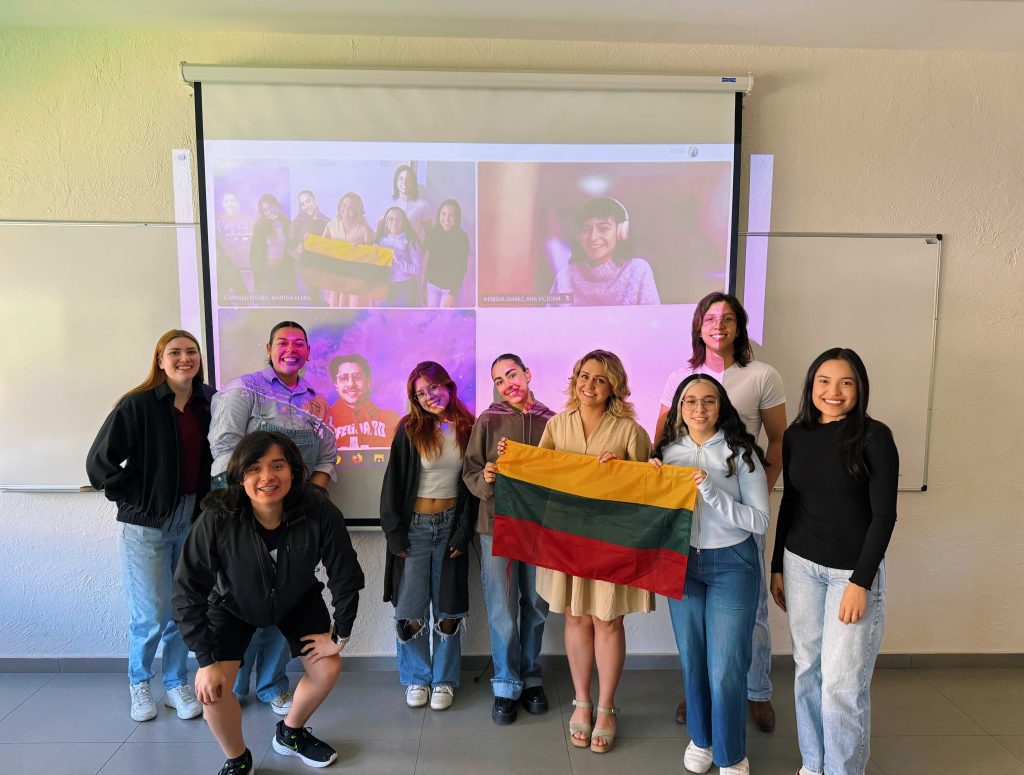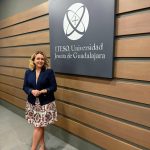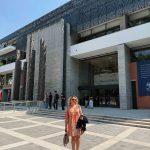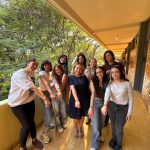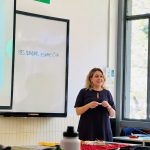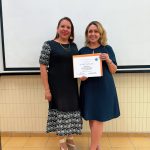Five VMU Students Awarded the Dr. V. and S. Čepukėnas Scholarship for Promoting Francophone Culture
On June 23rd, the Dr. Vaclovas and Dr. Stefanija Čepukėnas Named Scholarships were awarded for the third time at Vytautas Magnus University (VMU). This scholarship is granted to students for their outstanding contribution to the promotion and dissemination of the French language and Francophone culture in society.
This year, the scholarship was awarded to five recipients: Raimonda Mc Geever, a graduate of the Faculty of Humanities in Foreign Languages and Cultures: Francophone Studies; Karolina Žilytė, a master’s student in Diplomacy and International Relations at the Faculty of Political Science and Diplomacy; Raminta Dimšaitė, a bachelor’s student in Italian Studies and Romance Languages at the Faculty of Humanities; and Daria Livshyts and Aliya Zhumabayeva, bachelor’s students in Business Administration at the Faculty of Economics and Management.
The scholarships were presented during the Faculty of Humanities’ graduation ceremony. They were awarded by the initiators and patrons of the scholarship: Neila Baumilienė, Executive Director of the Kazickas Family Foundation’s New York branch, and the Čepukėnas’ daughters, Milda Krivickienė and Rasa Čepukėnaitė, along with Almantė Meškauskienė, Deputy Director of the VMU Institute of Foreign Languages.
In her congratulatory speech, Rasa Čepukėnaitė shared a few words about the people whose legacy the scholarship honors: “Our parents began working at VMU from the very first day of the university’s re-establishment. They were devoted patriots of Lithuania, French language lecturers, and philanthropists who cared deeply about nurturing the younger generation.”
Before the official award ceremony, the recipients met with the scholarship founders for an informal gathering and conversation. The students and graduate shared personal stories about how they first encountered the French language, what inspired them to study it, and how they plan to use the scholarship support for meaningful development. Neila Baumilienė, the scholarship initiator and VMU alumna, also shared how, as a student, she came to know both Dr. Vaclovas and Dr. Stefanija Čepukėnas, and how the idea for the scholarship was born.
Their daughters, Milda Krivickienė and Rasa Čepukėnaitė, also spoke about their parents. According to them, Dr. Stefanija Čepukėnienė was known for her remarkable dedication to teaching: “The academic world meant everything to her – she gave all her energy to her students. She never did things halfway – she gave one hundred percent. At the end of each academic year, she would invite her entire group to a café – to celebrate their achievements, to simply connect. The bond between her and her students went far beyond academics – she was not only a lecturer, but a guide, a supporter, a true mother figure.”
Almantė Meškauskienė, Deputy Director of the VMU Institute of Foreign Languages, expressed joy that every year many students at VMU choose to study the French language and Francophone culture, along with many other languages: “Each year, in each semester, we offer 22–24 foreign languages at the university. Quite often the teachers are native speakers, and students choose languages not only for professional growth, but also for personal enrichment.”
The Dr. Vaclovas and Dr. Stefanija Čepukėnas Named Scholarship at VMU was established on the initiative of alumna Neila Baumilienė, Executive Director of the Kazickas Family Foundation (New York branch), with support from the foundation itself. The scholarship was created to honor the Čepukėnas family’s legacy and contribution.
Financial support is also provided by the Čepukėnas daughters, Rasa and Milda. The goal of the scholarship is to promote the French language and Francophone culture by enabling active students to deepen their studies and foster greater awareness in society.
About Dr. Vaclovas and Dr. Stefanija Čepukėnas
Dr. Vaclovas and Dr. Stefanija Čepukėnas were long-standing lecturers at Vytautas Magnus University and devoted patriots of Lithuania. Throughout their professional lives, they actively participated in civic life, engaged in philanthropic work, and provided support to those with limited access to education.
Dr. Vaclovas Čepukėnas was a Doctor of Psychology, a French language lecturer in both school and university settings, and an active participant in Lithuania’s armed resistance. During World War II, he served as a volunteer fighter with the Homeland Defense Group. For his civic contributions, he was awarded the Medal of the Founders of the Lithuanian Armed Forces.
Dr. Stefanija Čepukėnienė held a doctorate in the humanities, was a professor of French at VMU, and was among the university’s early and most devoted educators after its re-establishment.
Sustainable Multilingualism conference focuses on language preservation and diversity
On 29-31 May, Vytautas Magnus University hosted the 8th International Conference “Sustainable Multilingualism 2025”, organised by the VMU Institute of Foreign Languages (VMU UKI) and the Lithuanian Language Pedagogues’ Association (LKPA). This scientific event attracted over a hundred language policy makers, language and multilingual competence researchers, lecturers and students from Lithuanian and foreign higher education institutions.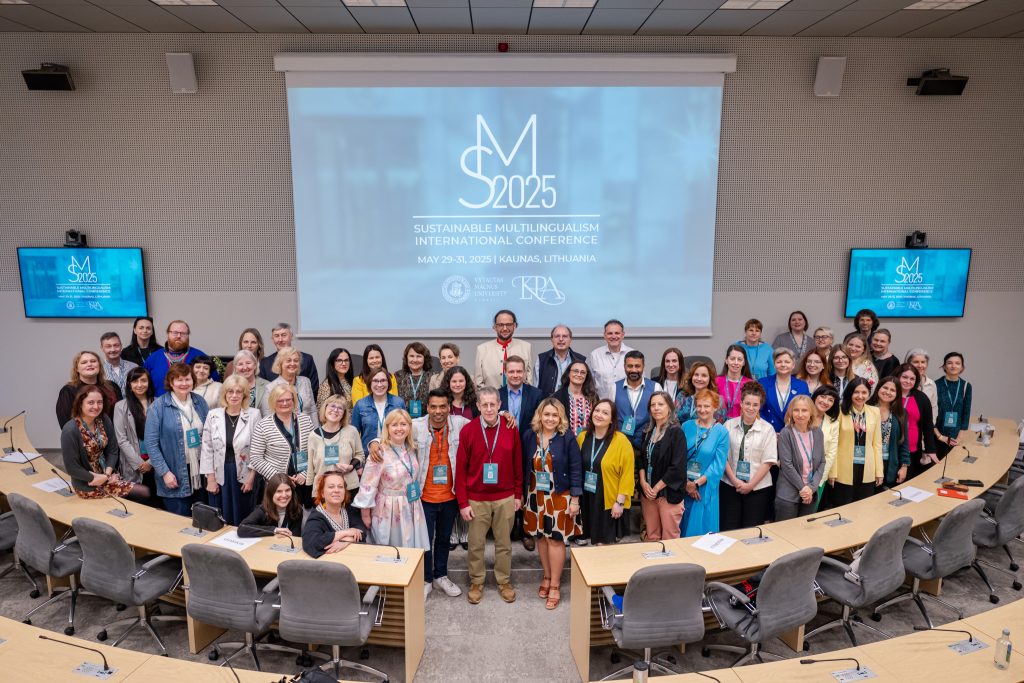
“In organising the conference, we try to look at the phenomenon of multilingualism from different perspectives. This was best revealed in the presentations by plenary speakers, world-renowned scholars from as many as three continents – Australia, North America and Europe. I believe that the conference was not only a time of sharing new research insights, having a meaningful and enjoyable time, but also of making new contacts for research and further collegial collaboration.” – says Prof. Nemira Mačenskienė, Chair of the Conference Scientific Committee.
Professor Ghil’ad Zuckermann (University of Adelaide) opened the plenary session of the Sustainable Multilingualism 2025 conference with a presentation on research on language revitalisation, identity and cultural resilience. Plenary speakers Dr. Karina Firkaviciute (Lithuanian Karaite Cultural Community) and Johan Sandberg McGuinne (Saami Writers Association) focused on the importance of language preservation. John W. Schwieter (Wilfrid Laurier University) from Canada shared his insights on language acquisition from a cognitive perspective, while Professor Jūratė Ruzaitė, representing VMU among the plenary speakers, presented research on hate speech from a linguistic and sociolinguistic perspective.
The conference also featured parallel sessions on topics such as language policy implementation, language preservation and revitalisation, multilingual competence, technology-enhanced language teaching, and contemporary research on French, Latvian, Lithuanian, Spanish and Ukrainian. Traditionally, presentations at the Sustainable Multilingualism 2025 conference were given in a variety of languages. They were delivered in English, French, Latvian, Lithuanian, Spanish, Ukrainian and German by researchers from Estonia, Latvia, Poland, Spain, Italy, France, Sweden, Germany, Ukraine and other countries. In a dynamic roundtable discussion on “From Policy to Practice: University Alliances and Multilingualism”, participants shared their thoughts on the experiences and challenges of developing multilingualism and discussed perspectives for the development of multilingual education across Europe.
The international conference “Sustainable Multilingualism” was launched at Vytautas Magnus University more than a decade ago. The biennial scientific event brings together like-minded researchers, teachers, students and all those interested in multilingualism issues. “It is a great pleasure to welcome both old-timers (e.g. Dr. Michael Loenz from Germany is attending for the seventh time!) and new participants at the Sustainable Multilingualism Conference. For all of us, languages are not only an area of research but also an expression of friendship. And sustainable multilingualism comes first and foremost from people’s communion and understanding of each other. So the discussions and sharing of experiences continued not only during the conference, but also informally or during the excursion to Dzūkija.” – Dr. Teresė Ringailienė, Chair of the Conference Organising Committee and Director of the VMU UKI, shares her insights.
The conference “Sustainable Multilingualism” says goodbye until 2027! We invite you to look back at the most memorable moments of the conference, captured in the photos of VMU photographer Jonas Petronis:
International Multilingualism Conference at VMU
The Institute of Foreign Languages of Vytautas Magnus University and the Language Teachers’ Association of Lithuania are pleased to invite you to the 8th International Scientific Conference “Sustainable Multilingualism 2025”, which will be held in Kaunas, Lithuania, on 29–31 May 2025.
The aim of the Conference is to bring together language policymakers, researchers in language and multilingual competences, teachers, students, and all those who are interested in multilingualism to share their experiences and insights.
The first two days of the Conference will focus on research topics related to multilingualism in society (implementation of language policy, preservation of languages, enforcement of linguistic rights, etc.); language teaching/learning and the development of multilingual and intercultural competence; multilingualism and professional practice; the development of the teacher’s multilingual competence; and the contemporary Lithuanian language, which is the basis of our multilingual
competence. On the third day, the Conference participants will be invited to explore Lithuania and its cultural heritage on a guided excursion in Dzūkija.
The keynote speakers of the Conference, world-renowned scholars, will present their latest research on the challenges faced in language teaching/learning and translation and on the future of a multilingual world. This year’s Conference programme includes four keynote speeches that will be given by the following speakers:
· Dr. Karina Firkavičiūtė, who is the Head of the Lithuanian Karaim Association of Culture, a civil servant of the EU Research Executive Agency, an associate professor of Humanities, a musicologist, a member of the Lithuanian Composers’ Union, and a holder of a Master’s degree in Interdisciplinary European Studies.
· Dr. Jūratė Ruzaitė, who is a Professor at the Department of Foreign Languages, Literary and Translation Studies at Vytautas Magnus University. She has rich experience in (inter)national research projects, including a national project “Semantika-2” (2018–2019), which developed software for automatic detection of offensive online comments in Lithuanian. Her research interests include sociolinguistics, pragmatics, discourse analysis, language and ideology, hate speech, propaganda and disinformation.
· Johan Sandberg McGuinneis, who is a South Saami and Scottish Gaelic poet, traditional yoik singer, writer, literary scholar and language activist, the president of Tjállegoahte, the Saami Writers’ Centre in Sweden, and the Regional Representative for Sápmi in the Swedish Writers’ Union.
· Dr. John W. Schwieter, who is a Professor of Psychology, Linguistics, and Spanish at Wilfrid Laurier University and adjunct professor of Linguistics at McMaster University, both in Canada. Dr. Schwieter’s research interests include cognitive and neuroscientific approaches to multilingualism and language acquisition; translation, interpreting, and cognition; and second language teaching and learning. He has published more than 100 journal articles and book chapters and is the author or editor of 23 books.
More information about the conference website.
Guests from Frankfurt
From 23 to 25 April, Marie Leroy and Maria Ringler from Frankfurt, Germany visited the Institute of Foreign Languages of VMU as part of the Erasmus+ Specialist Visits Programme of the Institute of Two-Nation Families and Partnerships. They met with the UKI administration, discussed the prospects of possible cooperation and shared mutual experiences on multilingualism issues, attended lectures in German and Spanish and prepared a seminar-discussion for the lecturers on “Promoting Multilingualism in the Context of Migration: Experiences from the Association of Binational Families.
Finansuojama Europos Sąjungos lėšomis. Tačiau išreiškiamas požiūris ar nuomonė yra tik autoriaus (-ių) ir nebūtinai atspindi Europos Sąjungos ar Europos švietimo ir kultūros vykdomosios įstaigos (EACEA) požiūrį ar nuomonę. Nei Europos Sąjunga, nei EACEA negali būti laikoma už juos atsakinga.
Training for VMU lecturers „Flipping a classroom for a better teaching and learning experience“
We would like to invite VMU lecturers to participate in online training „Flipping a classroom for a better teaching and learning experience“, which will be held on 22nd of May, 9.00–12.00 CET by VMU lecturer dr. Žieda Tamašauskaitė. Registration
The training programme is designed for university teachers who either struggle to get their students engaged in their lessons or who are in search of more effective ways of teaching various university-level courses. The training comprises two lectures and a workshop. In the lectures, participants familiarize themselves with the basic principles of the flipped classroom method, get to know the advantages that the application of the method is expected to bring to both the teacher and his/her students, and learn about different ways of flipping a classroom. During the workshop, participants do practical exercises and activities that are intended to assist them in sharing their knowledge of effective teaching practices and generating ideas for integrating the flipped classroom method into their classroom.
Content:
The training programme comprises lectures and a workshop.
Lectures (120 minutes):
Topic 1. Definitions of the flipped classroom
Topic 2. Characteristics of the flipped classroom
Topic 3. Benefits and challenges of the flipped classroom
Topic 4. Three ways of flipping a classroom
Workshop (60 minutes):
Activity 1. Comparing traditional, flipped and our classrooms
Activity 2. Identifying challenges and preparing to overcome them
Activity 3. Getting ready to flip a classroom
CILEC is opening its applications for 4 training offers
CILEC is opening its applications for 4 training offers:
– The Preparatory course for the Master’s degree in French as a foreign language: 600 hours of annual training (480 hours of French + 120 hours of introduction to the teaching of French as a foreign language) takes place in collaboration with the Department of French as a Foreign Language. This course prepares students for a French diploma (level B2 to C1) and a didactic initiation, for then integration into a Master’s degree in French as a foreign language.
https://cilec.univ-st-etienne.fr/fr/nos-cours-et-examens/parcours-preparatoire-au-master-fle.html
– The DUEF – « Diplôme Universitaire d’Etudes Françaises » (levels A2 to C1): for your students wishing to improve their French skills. The pedagogical objectives are aimed at preparing students for higher education in France. Semester training of 240 hours (20 hours per week) validated by a University Diploma.
https://cilec.univ-st-etienne.fr/en/our-courses-and-exams/intensive-french-courses/duef.html
– Summer courses: for any international audience wishing to improve their French skills through a linguistic and cultural stay. (beginner level to B2 level). Short training of 2 to 4 weeks from June 24 to July 19, 2024 (20 hours per week).
https://cilec.univ-st-etienne.fr/en/our-courses-and-exams/summer-school.html
– Online courses for beginners: complete beginners in French. The objective of the training is to acquire the solid foundations of the A1 level in order to integrate the A2 diploma course at CILEC. Existence of a personalized follow-up of your work online and tutoring. 65 hours of training including 50 hours of preparatory work for the online course, 11 hours of online French lessons and 4 hours of tutoring.
https://cilec.univ-st-etienne.fr/en/our-courses-and-exams/beginner-french-online-course.html
Visit to Sofia University
Last week, the Director of IFL Dr. Terese Ringailienė visited Sofia University in Bulgaria on an Erasmus+ teaching visit, where she gave lectures on the Lithuanian language in a multilingual context, Lithuanian culture, and organised a game and workshops for students.
It is very encouraging to see the close links with this Transform4Europe Alliance university: the lecturers of Sofia University participated in one and the students in another blended intensive programme at VMU, and the lecturers of the VMU IFL also visited Sofia University for a blended intensive programme and for a teaching visit.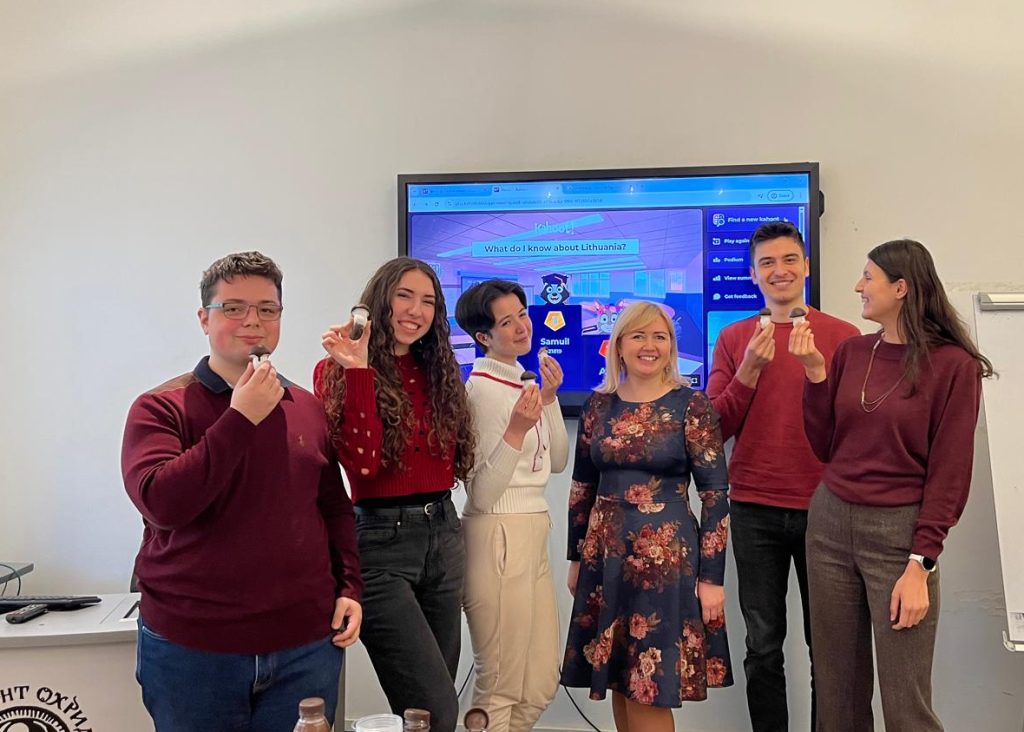
A very enjoyable part of the visit was to meet the students who had already visited VMU. They still remember Kaunas and the Blended Intensive Programme they attended in April 2024 as a very nice experience that not only provided knowledge but also introduced them to other cultures or gave them the opportunity to meet students from other countries. And the friendships continue.
The Institute of Foreign Languages is inviting you to language tasters
Have you been looking forward to the language tasters? As every semester, the Institute of Foreign Languages invites you to ‘taste’ lesser-known languages by taking part in online events, finding out new things about languages and cultures and maybe even learning new words or phrases.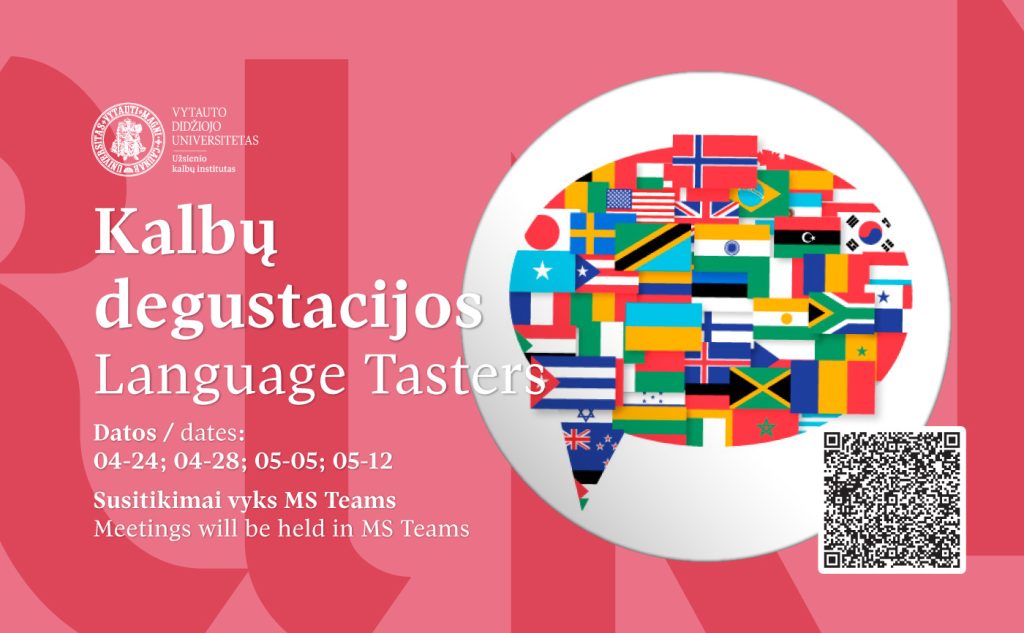
This time we will be focusing on some languages of the Transform4Europe University Alliance: Catalan, Slovenian and Silesian. Also, have you ever thought that German is not the only language spoken in Germany? During the event, you will learn about Lower German. The events, which will be held in English, are open to anyone interested in languages and cultures; therefore, feel free to share the event link with colleagues, friends and acquaintances.
The events, which will be held in English, are open to anyone interested in languages and cultures; therefore, feel free to share the event link with colleagues, friends and acquaintances.
Link to language tasters: language tasters
Visit of guests from Madrid Escuela Oficial de Idiomas de Rivas
From March 31 to April 5, two guests, Rūta Bražinskaitė and Rocio Ganzabal Fernandez, from the Madrid Escuela Oficial de Idiomas de Rivas language school, visited the VMU Institute of Foreign Languages on an Erasmus visit.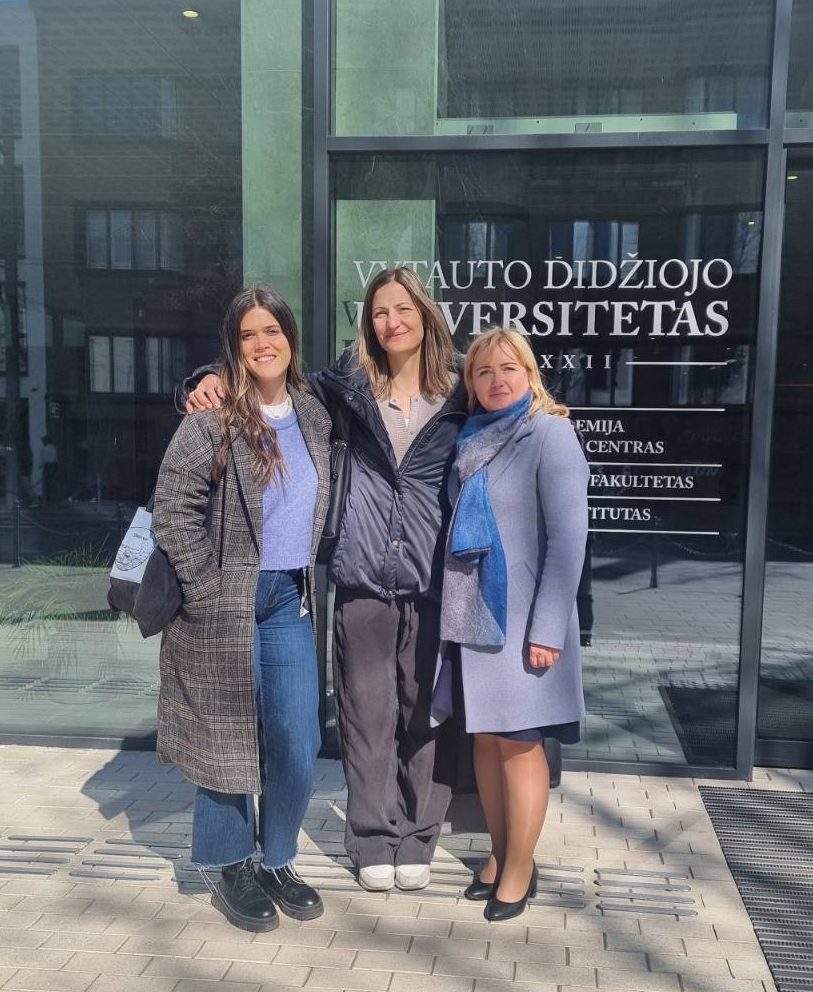
The language lecturers had arrived at the UKI for a job shadowing visit, during which they observed English A2 and C1 lectures by lecturer Aurelija Čėglytė, Lithuanian A1 lecture by dr. Teresė Ringailienė and Spanish A1 lecture by lecturer Rima Sabaliauskienė. During the observation of these lectures, the guests delved into the innovative methods applied, the use of ICT tools and artificial intelligence, as well as intercultural communication and its integration into the learning process. At the end of the visit, the lecturers from Spain themselves conducted English B2 level lectures, during which they tried to apply the acquired knowledge.
Teaching visit at ITESO University in Mexico
Vigilija Žiūraitė, a Spanish lecturer at VMU Institute of Foreign Langauges, participated in an Erasmus+ teaching visit at ITESO University in Guadalajara, Mexico, from March 10 to 14.
During her visit, Vigilija Žiūraitė delivered lectures to students enrolled in the Bachelor of Translation and Interpretation programme within the Department of Foreign Languages. She also conducted a Lithuanian language and culture workshop open to the entire university community. She was pleased to observe that both students and teachers showed a keen interest in Lithuania, actively attending the sessions and engaging with the country’s history, customs, and socio-political landscape. Additionally, V. Žiūraitė shared her insights on Lithuania’s position in global politics during an interview organised by ITESO’s Sociopolitical and Legal Studies Department (video on Youtube).
Colleagues in the Foreign Languages Department, Director Sarah Joanne Brown and Lecturer Martha Carillo Flores, ensured a welcoming and enriching experience for V. Žiūraitė. Beyond her academic engagements, they organised cultural excursions to Tlaquepaque, Tequila, and Puerto Vallarta cities, providing her with a deeper knowledge of Mexico’s cultural diversity. According to Vigilija Žiūraitė, Mexico remains an underrated region about which little is known, and conversely, Lithuania is not widely recognised there. Therefore, such Erasmus+ visits offer a unique opportunity not only to explore another country’s culture, acquire new knowledge, and establish valuable connections but also to promote the names of Lithuania and VMU.
- Activate your English A1-A2: intensive semester course
- Activate your English A2-B1: intensive semester course
- Activate your English B1-B2: intensive semester course
- Alumni
- Conference
- Conferences
- Courses
- Home
- IFL Research Cluster
- İngilizce Hazırlık Kursu “English Prep-Course”
- Language learning
- News
- Research
- Scientific Journal “Sustainable Multilingualism”
- Students
- Подготовительный курс английского языка “English Prep-Course”
- About us
- Contacts


